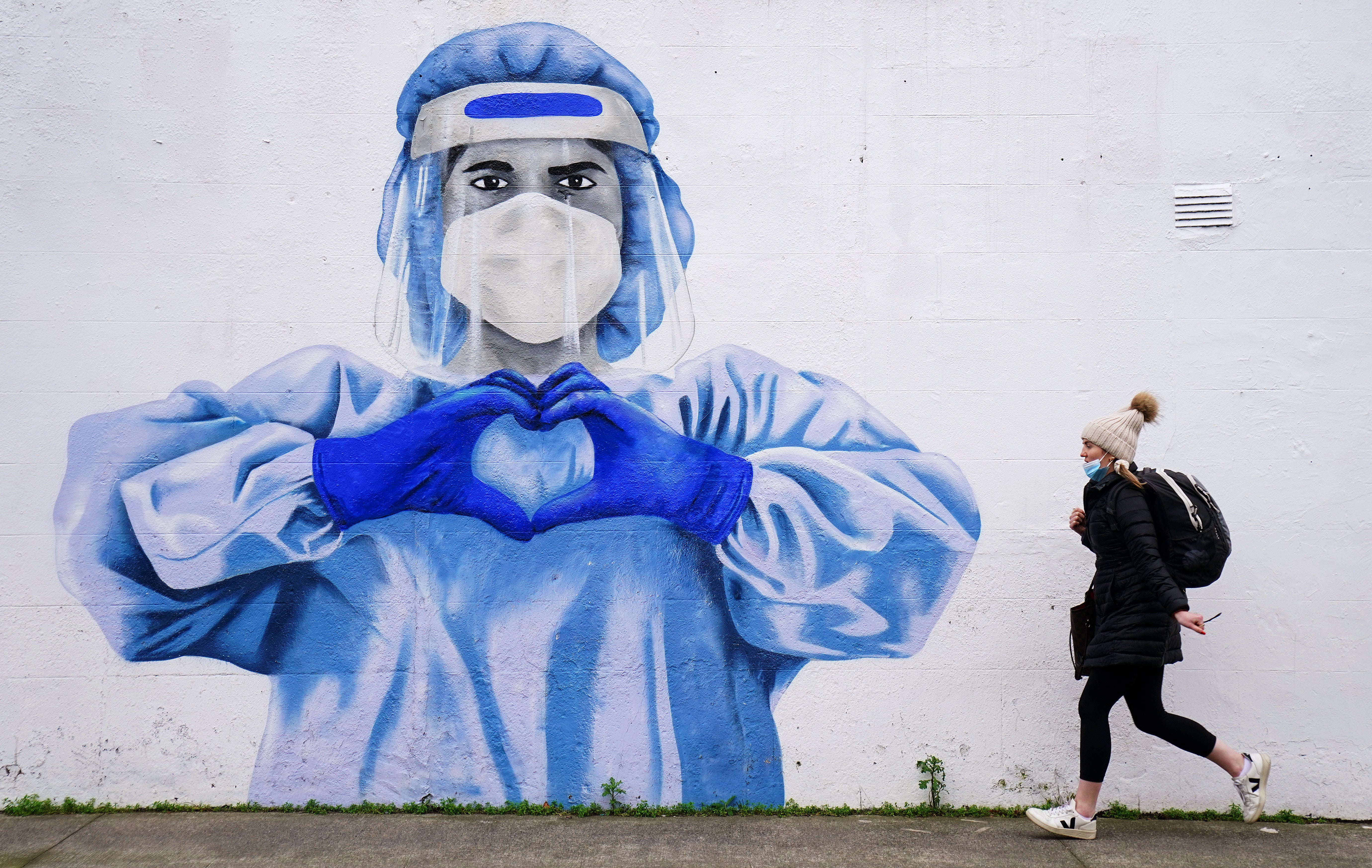Legal requirement to wear a mask to end in Ireland
From February 28 there will be no legal requirement to wear a mask anywhere, but it will be advised on public transport or in health settings.

There will be no legal requirement to wear a mask in Ireland from February 28, the deputy premier has announced.
Tanaiste Leo Varadkar said there will be no legal requirement to wear a mask in any setting, but it will still be advised on public transport and in healthcare settings.
Speaking after a meeting of the Cabinet on Tuesday, Mr Varadkar also announced the requirement for pods, staggered breaks, masks and physical distancing in schools will also end on February 28.
He said while it will be a “more normal school and childcare experience” from Monday, some measures will remain in place including recommendations around good hygiene, ventilation and advice for children to stay at home when sick.
In relation to testing and close contacts, Mr Varadkar said those who test positive for Covid-19 in Ireland will still be required to isolate for seven days, and on days eight, nine and ten to wear a mask.
However, rules will change for close contacts, with the requirement to restrict movements to be lifted from February 28.
Testing will be reserved for those who are vulnerable, with those under 55 and in good health and over 55 and fully vaccine boosted no longer advised to take Covid tests from February 28.
Nphet concluded that there is no longer a continuing public health rationale for retaining them (masks)
Mr Varadkar also said there will be no vaccine mandates for the public or healthcare workers, but they will be encouraged to have a jab.
“All of those changes are coming into place on February 28 and this is the next step that we are taking towards living with Covid as an endemic virus, one that we manage in the way that we have managed viruses like the flu, for example, in the past,” he said.
The Cabinet will meet again over Covid on February 28 to consider the next steps.
Earlier, Foreign Affairs Minister Simon Coveney indicated that the Government was likely to approve the recommendations from health officials at a meeting of the Cabinet.
Taoiseach Micheal Martin confirmed last Friday that the Government would be accepting the guidance from the National Public Health Emergency Team (Nphet) that will bring an end to mandatory mask wearing.
Chief medical officer Dr Tony Holohan recommended an end to the mandatory wearing of masks, but they will be advisory in healthcare settings and on public transport.
In his letter to Health Minister Stephen Donnelly, Dr Holohan said: “Nphet concluded that there is no longer a continuing public health rationale for retaining them and advised that the following measures could be removed with effect from February 28 as planned.
“Mandatory mask wearing in areas where it is currently regulated for, including: public transport, taxis, retail and other indoor public settings, and staff in hospitality settings.
“Public health measures in early learning settings, school-aged childcare, primary and secondary schools, including physical distancing measures such as pods, and mask wearing.”
I think we'd also be advising people to use their own judgments
Mr Coveney told RTE radio: “We’ve listened to our medical experts, right the way through Covid, that’s what Nphet has been there for.
“I think they’ve done an incredible job. Sometimes they’ve had to recommend decisions to Government that were unpopular and there’s been a lot of public debate around that.
“But the recommendations now coming from our Nphet team are clear.
“And I think we’re likely to discuss that in Cabinet this morning and accept those recommendations whereby masks would remain in medical settings in particular.
“I think we’d also be advising people to use their own judgments. And I think a lot of people will continue to wear masks on public transport, for example, and in other potentially crowded settings.”
Bookmark popover
Removed from bookmarks